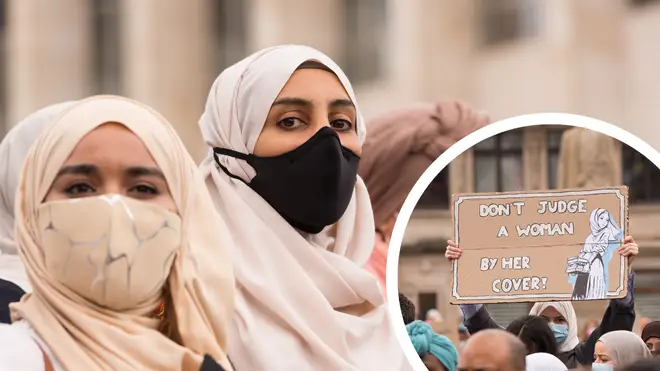
Ian Payne 4am - 7am
16 July 2021, 11:34 | Updated: 16 July 2021, 11:36

The European Union's top court has ruled that Muslim women can now be banned from wearing hijabs in the workplace.
The case was brought forward by two Muslim women in Germany, who were suspended from their positions for wearing head coverings.
Both women - one of whom is a special needs carer at a childcare centre in Hamburg, and the other a cashier at a pharmacy chain - did not wear hijabs when they first started their jobs.
However, court documents state that after deciding to do so when they returned from parental leave, they were told it was not allowed and that they either had to return without one, or find another job.
In both cases, the European Court of Justice had to determine whether or not the ban was a violation of the freedom to practise religion, or whether it was allowed under the freedom to conduct a business.

9-Year-Old Girl Tells Ian Payne Why She Wears A Hijab
Ultimately, it ruled that banning hijabs in the workplace was justified in certain circumstances, if an employer needed to present a "neutral image".
It said: “A prohibition on wearing any visible form of expression of political, philosophical or religious beliefs in the workplace may be justified by the employer’s need to present a neutral image towards customers or to prevent social disputes.
“However, that justification must correspond to a genuine need on the part of the employer and, in reconciling the rights and interests at issue, the national courts may take into account the specific context of their Member State and, in particular, more favourable national provisions on the protection of freedom of religion.”
It is not the first time the use of hijabs has been called into question. In 2017, the EU court ruled that companies may ban staff from wearing Islamic head coverings and visible religious symbols under certain circumstances, sparking backlash among faith groups.
The Open Society Justice initiative has since expressed concern over the ruling, stating it "may continue to exclude many Muslim women, and those of other religious minorities, from various jobs in Europe."
Meanwhile, the Tell Mama organisation described the ban as a “deeply concerning and fundamental denial of the right to express religious identity across Europe”.